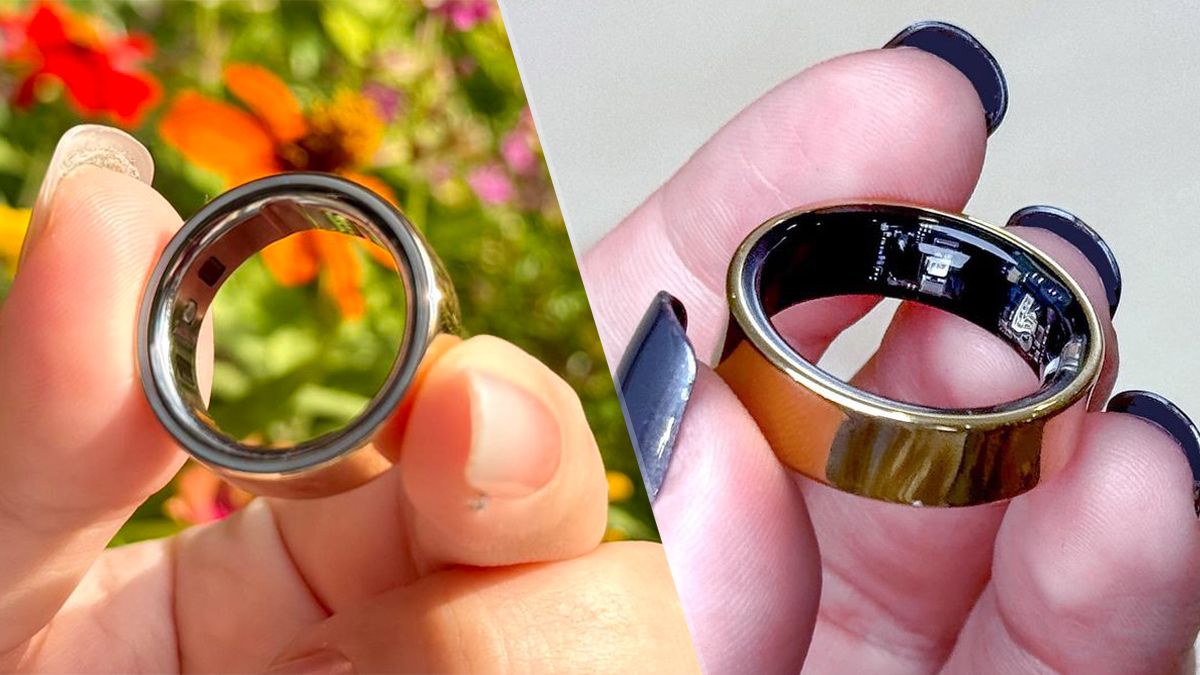
If you're looking for one of the best smart rings to track your sleep and monitor your health, there are really two main players; Samsung and Oura.
The Oura Ring 4 is the latest generation of the brand's smart ring and the company arguably created the entire market with its slimline, long-lasting rings. But then in mid-2024, with the launch of the Samsung Galaxy Ring, Oura got a true competitor.
So, if you're stuck between these two very-similar looking rings, I'm going to dig into everything you need to know about the Oura Ring 4 and Samsung Galaxy Ring, so if you find you like it, then you can finally put a ring on it.
Samsung Galaxy Ring vs Oura Ring: price
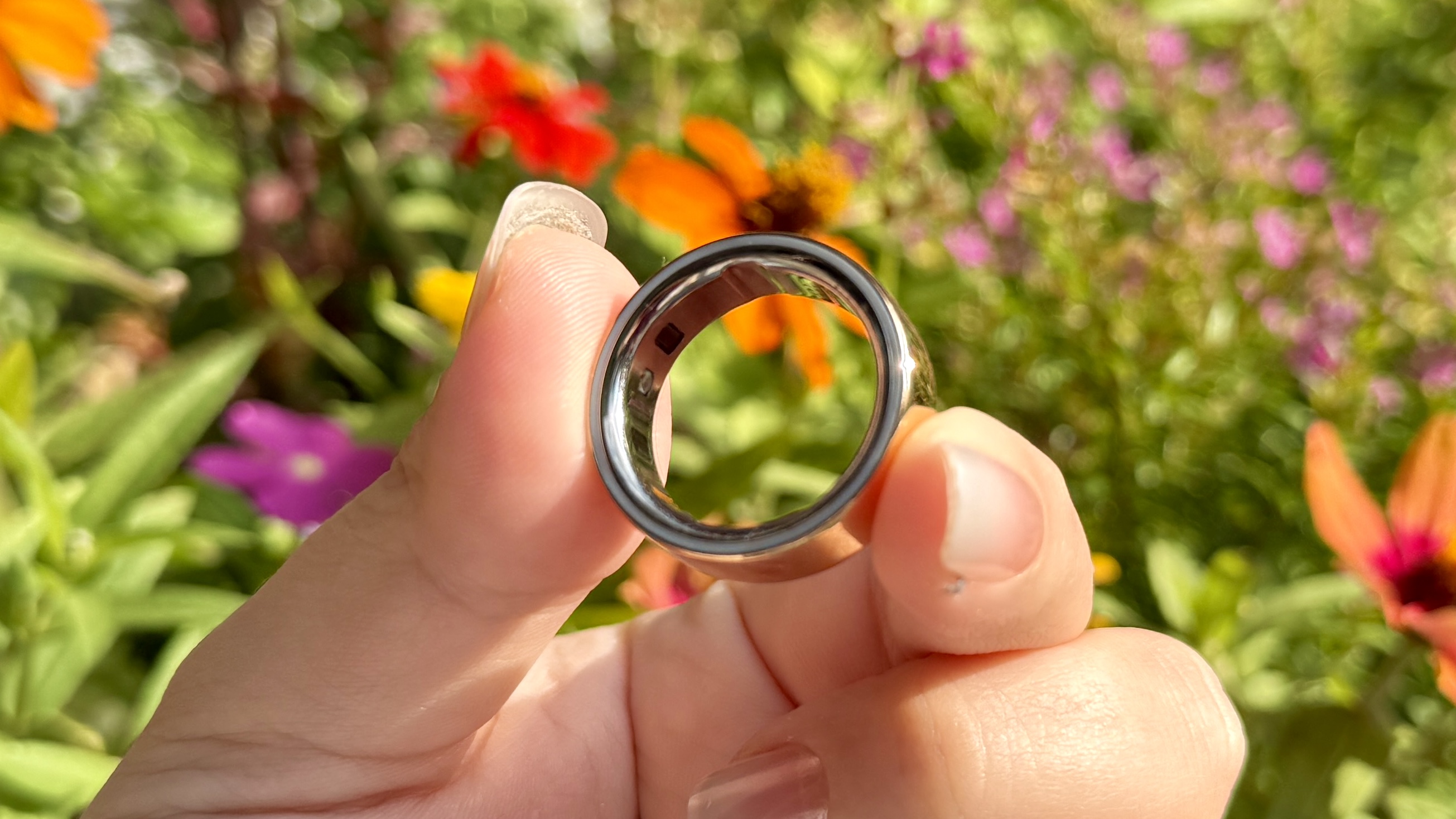
The Samsung Galaxy Ring retails for $399, which makes it the more expensive of the two, as the Oura Ring 4 starts at $349. But that price isn't a straightforward as it seems, as you need to factor subscriptions into the mix too.
To use the Oura Ring 4, you'll also need to be an Oura Member, which'll set you back $5.99 per month. So in the first year of use, the Oura Ring will actually cost more, as you don't need a subscription to use any of the Galaxy Ring's features.
But to complicate things, the Oura Ring works on iPhone or Android, while you need an Android phone to use the Galaxy Ring, and a Samsung phone specifically if you want to access all the ring's AI analysis features.
So, if you already have a Samsung phone, the Galaxy Ring is the cheaper option. But if you own another Android device or an iPhone, the Oura Ring 4 is probably going to suit you best when it comes to cost, as you don't need to invest in another phone.
Samsung Galaxy Ring vs Oura Ring: design
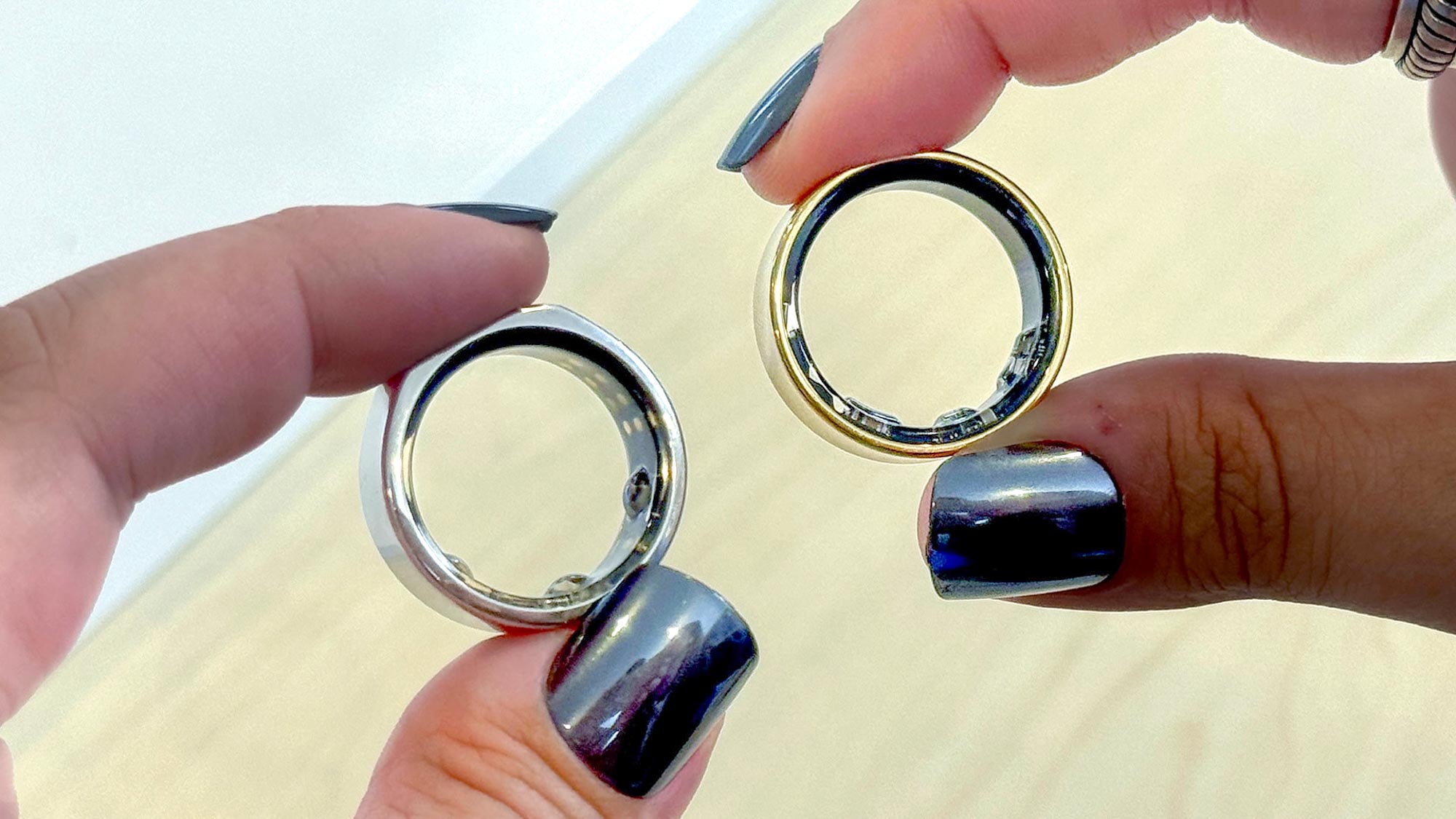
Unsurprisingly, the Samsung Galaxy Ring looks like..a ring. It's slightly wider and thicker than a standard ring but is similar to the Oura Ring 4.
It comes in three colors — Black, Gold and Silver — so you do have some degree of personalization. Meanwhile, the Oura Ring is available in Silver, Brushed Silver, Black, Gold, Rose Gold and Stealth, so Samsung may be taking design cues from Oura here.
The Oura Ring has always been super-comfortable to wear, so much so that when my colleague Kate Kozuch wore the older Oura Ring Gen-3 for a year, she would "often forget that [she was] wearing it."
And that older ring had a small bump on the inside where the sensors were. The Oura Ring 4 had a redesign which hid those sensors inside the ring's body, so it's an entirely flat inner, making it even easier to wear for long periods.
Then again, Kate also found that the Galaxy Ring's slightly concave and marginally lighter design made it "more attractive and comfortable to wear." Plus, like the Oura Ring 4 it is water resistant — so no need to take either ring off while sweating, cleaning your hands, showering or swimming.
Samsung Galaxy Ring vs Oura Ring: features
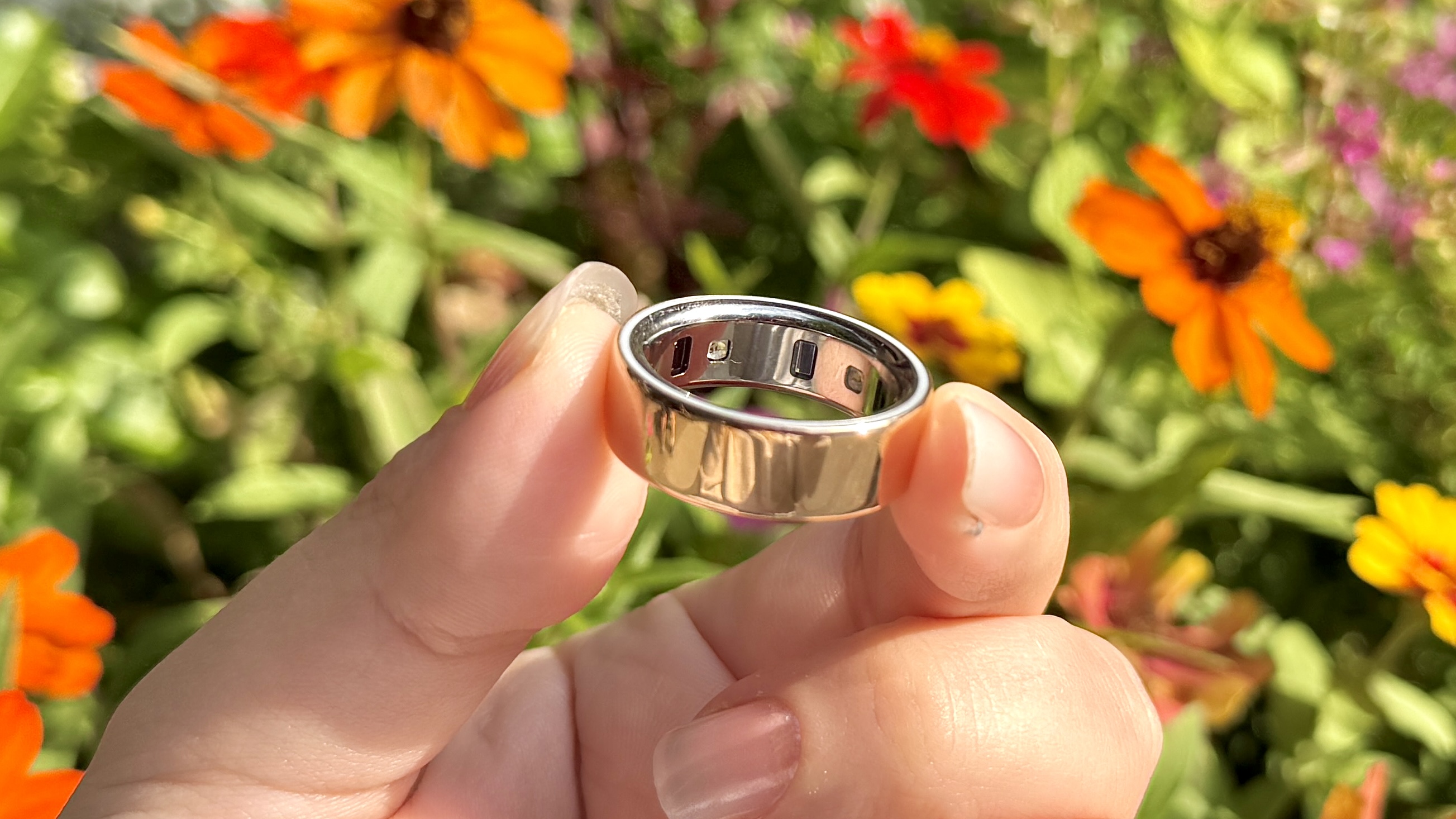
The first-generation Oura Ring was more like a fitness tracker without a display, but the latest edition takes a more holistic approach, designed to help you monitor your activity, but also how you feel physically and mentally using 20 biometric signals captured by its various sensors.
So, like the best Fitbits, you can track your steps, calorie burn, and overall activity levels. However, it doesn’t support detailed workout tracking, so you either need a separate smartwatch or fitness tracker, or log your sessions in Apple Health or Google Fit and sync them to the Oura app.
But on the whole, Oura is less interested in telling you that individual metrics — that's what the best smartwatches are for. Instead, the app takes all the information in, analyzes it, and makes it more relatable and actionable for you to actually act on it.
Unsurprisingly, the Galaxy Ring has a similar approach. Although the company never explicitly says this, the ring is like a companion to your Samsung smartwatch, picking up more detailed metrics and capturing sleep in a more comfortable way.
That's not to say you have to use a smartwatch alongside the Galaxy Ring, but if you're comparing the experience with Oura to the Galaxy Ring, it's clear that Oura sees the ring as a means to an end to get you actionable information — that's it's business.
Samsung is a more general consumer tech company, with phones, watches, and other tech that it'd love for you to buy and use. So while you can happily use the Galaxy Ring alone, there are reminders everywhere in the app that you might be 'missing out' without a watch to buddy up with.
But when it comes down to it, both rings offer a similar amount of metrics, and both use AI-powered features (in the Samsung Health app or as part of the Oura AI Advisior) to turn that data from numbers into something useful.
Samsung Galaxy Ring vs Oura Ring: women's health
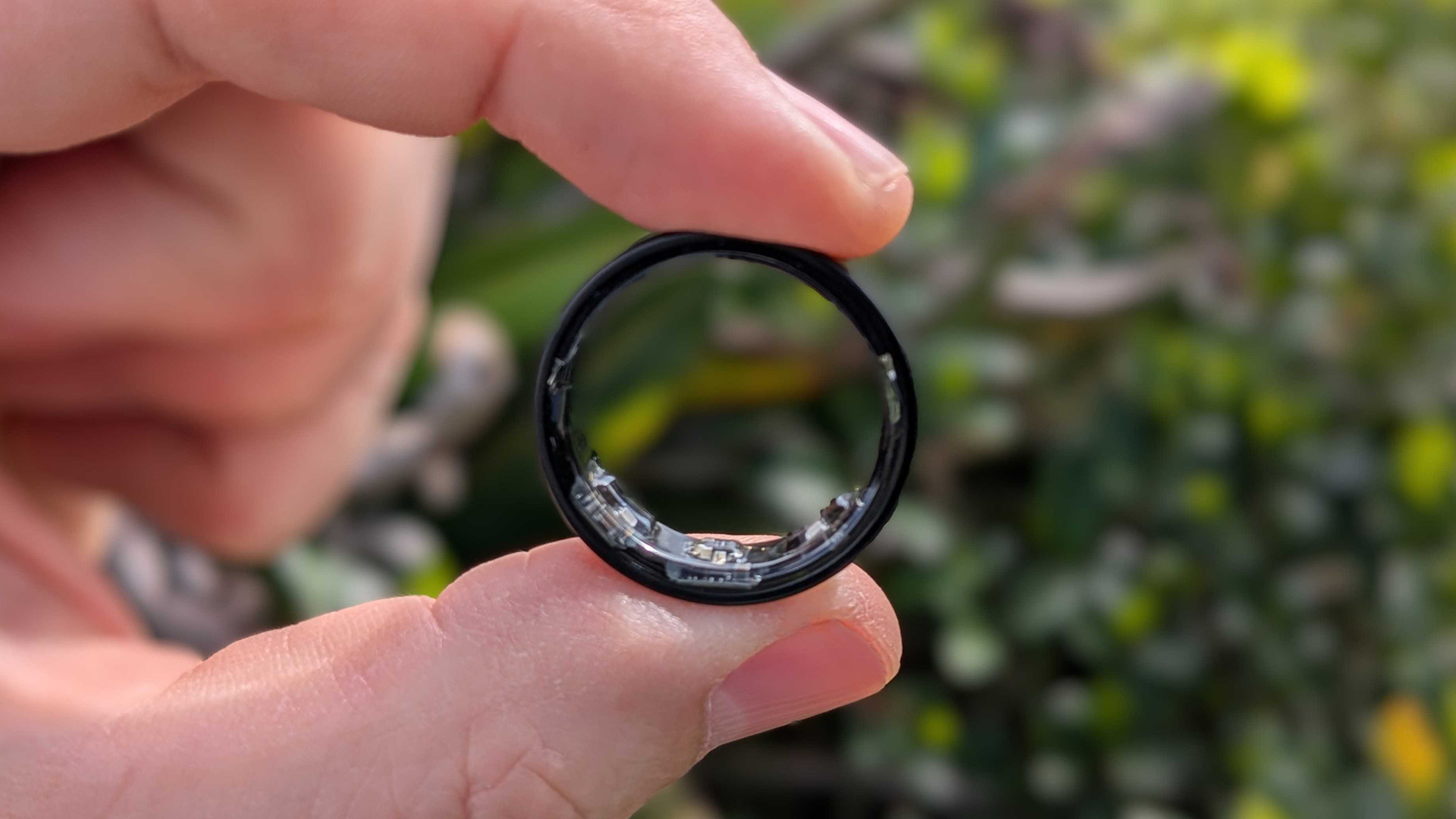
Most wearables also now offer some degree of female health tracking and cycle monitoring, and that's also the case with the Galaxy Ring, which offers period tracking and prediction.
This helps it compete with the Oura Ring, which integrates with the birth control app Natural Cycles, to track your menstrual cycle. The ring measures your temperature in the morning, and syncs that to Natural Cycles to inform your daily fertility status.
It’s impressively accurate, as our fitness editor found that the Oura Ring actually saw signs of her pregnancy before she did. Samsung has a similar partnership with Natural Cycles on some of its Galaxy smartwatches, but the Ring's implementation is slightly different.
For Oura's version, you need an Oura membership and a Natural Cycles subscription (for $20 per month), but you get full access to Natural Cycle's fertility, period tracking, and contraceptive features. Meanwhile, Samsung's edition is subscription-free.
But it's not all good news, as Samsung has only added a limited version of Natural Cycle's tech to the Samsung Health app, so you can track and monitor your periods, but you can't use the full array of pregnancy and fertility planning features.
Samsung Galaxy Ring vs Oura Ring: battery life
Your smartwatch only manages to limp through a day before needing a recharge, so you'd expect a tiny device like a smart ring to need even more regular top-ups. But that's not the case.
Oura says the Ring 4 should last up to 8 days, but we found it's more like 6 days in practice. Which is at least a step up from the Gen-3, which claimed 7 days but got 5 days. The Samsung Galaxy Ring is in the same ballpark.
The company claims it'll last a week, but we generally got 6 days of use before it needed a charge. Both rings charge quickly too, so an hour(ish) on the charging dock is usually enough to get it back to full, so you won't miss much tracking.
Samsung Galaxy Ring vs Oura Ring: compatibility
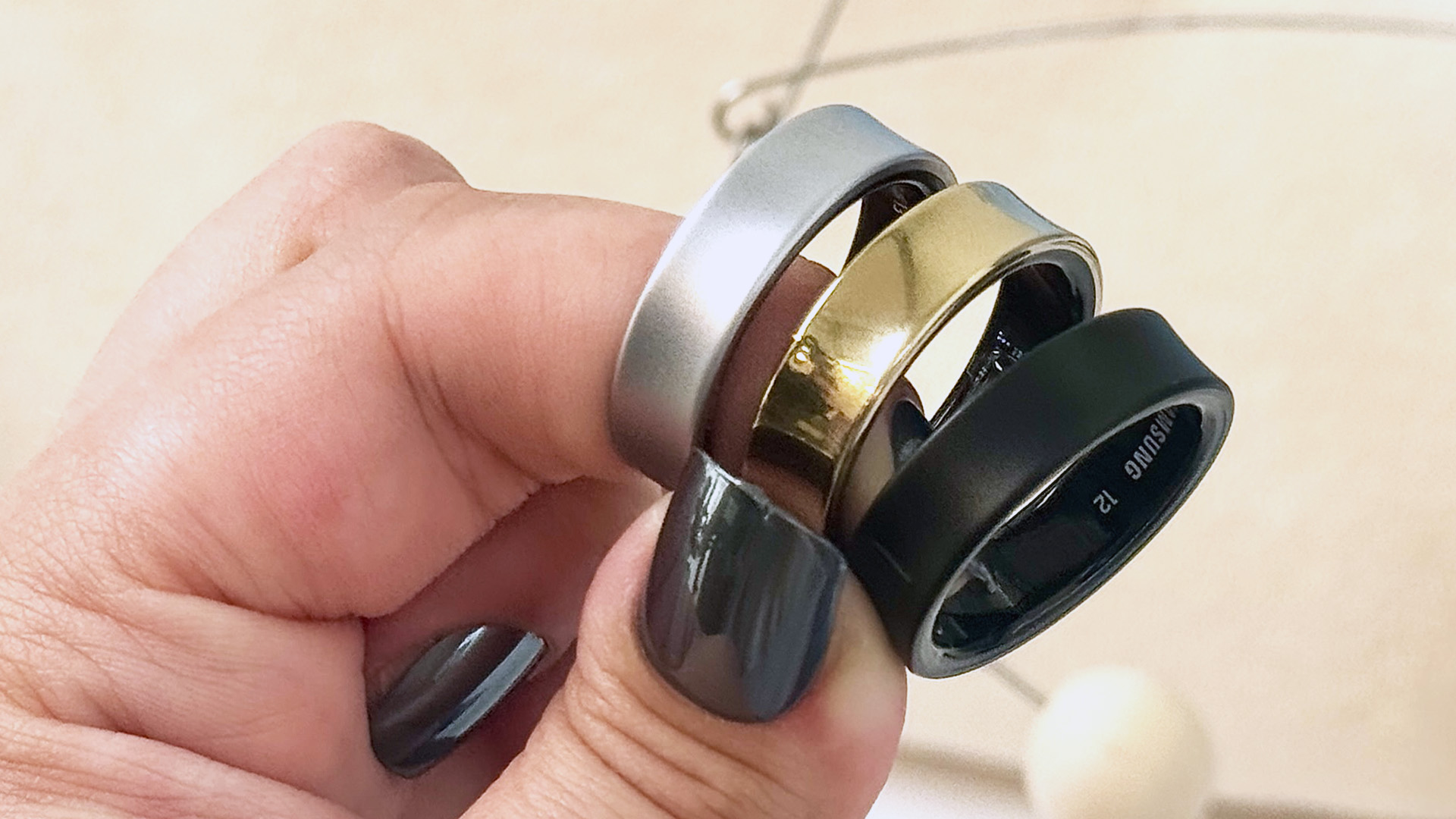
The Oura Ring is designed to work with iPhones and Android smartphones, but the Samsung Galaxy Ring takes a different approach. Samsung has been very clear that it intends to build a Galaxy ecosystem around its Health app.
In that sense, they’re following in Apple’s footsteps — you’ll buy a Samsung Galaxy smartphone, wear a Galaxy Watch 8 for workouts, and track your overall activity and sleep using the Galaxy Ring, with all the data easily accessible in Samsung Health.
So, while the design of the Galaxy Ring definitely positions it as an Oura Ring competitor, Samsung sees it as a way to passively gather data that you can use as part of the wider Galaxy ecosystem to improve your health and well-being, rather than a standalone device like the Oura.
Initially, it seemed like the Galaxy Ring would be exclusive to Samsung phones, but you can technically wear it alongside any Android phone, but then you lose out on all the AI-powered features like Energy Score and in-depth sleep analysis.
So, while it technically works on any Android phone, it's designed for Samsung devices. The main selling point of any smart ring is the analysis and insights, so if you have a non-Samsung Android, the Oura Ring 4 may be a better option if you don't mind the extra subscription cost.
Samsung Galaxy Ring vs Oura Ring: upgrades
Given these aren't cheap devices, the last thing you want is to invest your money in a new smart ring and then have the company release an upgraded model right away. Fortunately, that's not likely with Samsung or Oura right now.
The Oura Ring 4 came out in October 2024, three years after the Oura Ring Gen-3. Based on that schedule, we wouldn't expect a new ring until 2027. Plus, the Ring 4 was quite a modest update to the Gen-3, with most of the exciting changes found in the app, as Oura found new ways to analyze your data.
Likewise, Samsung launched the Galaxy Ring in July 2024, after years of rumors. Even though it's the company's first smart ring, it easily holds up against the more mature Oura Ring, so there's not a huge rush to get a new model out.
Plus, we'd expect Samsung to announce a new version at one of its Galaxy Unpacked events (like it did in 2024), but both of 2025's editions have come and gone without news, so we probably won't see a Samsung Galaxy Ring 2 until at least 2026.
Samsung Galaxy Ring vs Oura Ring — which comes out on top?
To most people, the top smart ring will always be the Oura Ring 4. The company built a reputation over almost a decade as the smart ring manufacturer, and got it on the fingers of athletes and celebrities, which makes it a more well-known option too.
But whether it's actually best depends on what you need it for. If I'm being honest, a lot of the choice between the Oura Ring 4 and Samsung Galaxy Ring depends on what phone you use. iPhone? You'll need the Oura Ring. Samsung? Go for the Galaxy Ring.
Though that leaves a lot of people with non-Samsung Android phones still in a bind. The Galaxy Ring is almost the same price as the Oura Ring 4, but you don't need a subscription to use it, making it cheaper in the long run.
Oura's analytics are potentially more health-focused, and it has a larger user base to pool insights from. But the Galaxy Ring is optimized for Samsung phones, so you miss out on key features if you use another Android phone — and if those are important to you, your best option is to spend more on the Oura Ring.
However, if you're after a non-Oura ring and the Galaxy Ring isn't right for you, then the Amazfit Helio Ring may be worth a look. Not only does it play nicely with Apple and Android smartphones, but it also doesn't require a monthly subscription to use.







